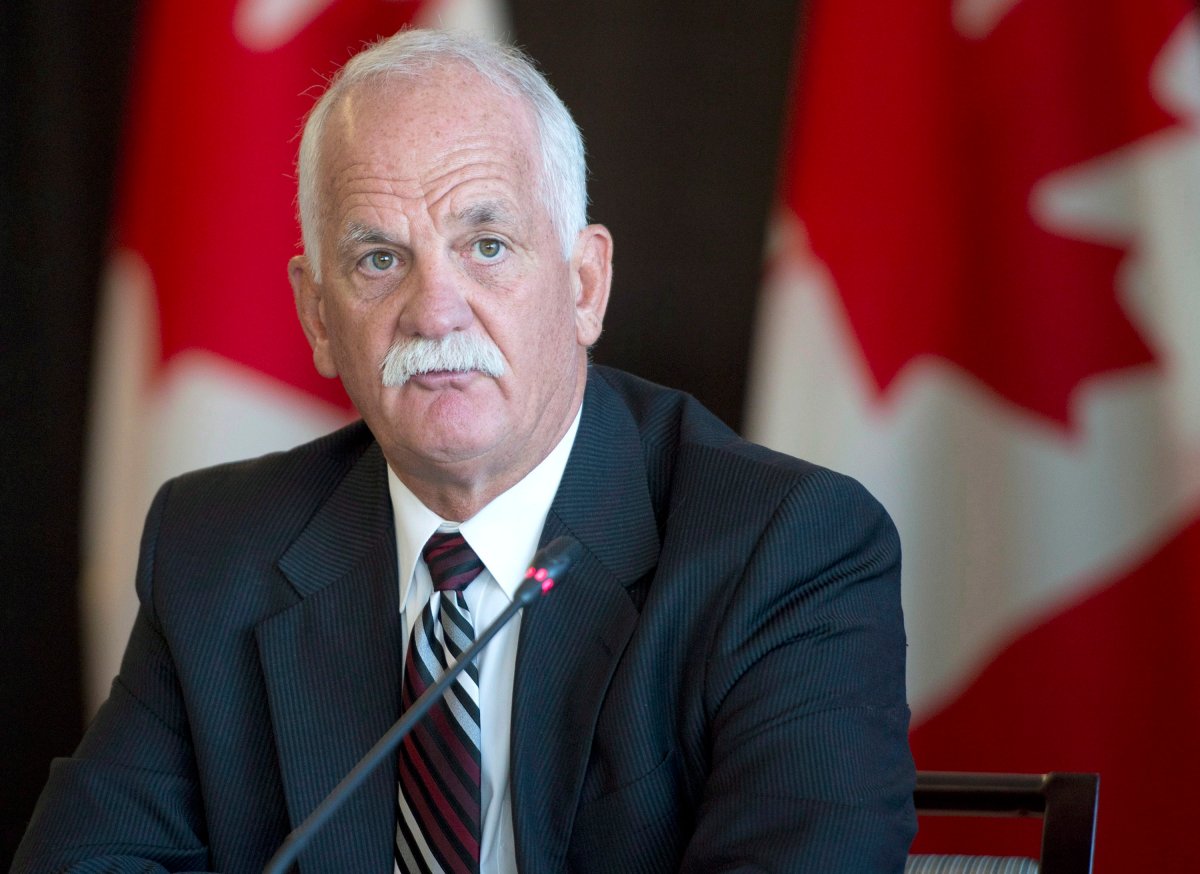After it was revealed this week the RCMP doesn’t want its top brass meeting with parliamentarians without clearance, Public Safety Minister Vic Toews says there is a “communications protocol” between his office and the RCMP for a very simple reason: so he can keep tabs on his file.

“I’m responsible for the RCMP. I need to know exactly what the RCMP is doing and saying because if I go into the House of Commons and I have no idea what is being said, I’m at a distinct situation where it appears that I’m not carrying out my responsibilities to the House of Commons,” Toews said in an interview on the Global News program The West Block with Tom Clark.
Toews made the comments after news broke this week that RCMP Commissioner Bob Paulson ordered senior Mounties to get clearance from his office before meeting with parliamentarians.
Toews said MPs can come to him and tell him they want to talk to the RCMP.
“Essentially what happens, especially if it’s MPs from my party, they’ll come to me and say, ‘Look I want to talk to the RCMP,’ and I’ll refer them to an individual and that’s the end of it,” he said.
“The RCMP clearly has to communicate as an entity, especially on issues of national and public security.”
He said if MPs and RCMP members meet casually in their own communities, it is not cleared through his office.
- Iran fires air defences at military base after suspected Israeli drone attack
- Carbon rebate labelling in bank deposits fuelling confusion, minister says
- Conservatives ask interference inquiry judge to rule elections were flawed
- Joly says Canada is monitoring escalating Iran-Israel tensions ‘closely’
“I think what the commissioner was talking about is senior officers in the RCMP that are communicating matters of policy related to the administration of the RCMP,” said Toews. “But obviously, MPs meet on a daily basis with members of the RCMP in their own communities to discuss about specific issues in their community. They don’t clear that through my office.”
Toews also spoke at length about the Via terror plot. He said he’d been briefed on the investigation on an ongoing basis since at least last fall, but only found out about the arrests of the two suspects minutes before the RCMP made their move last Monday.
While on “constant alert” waiting for the RCMP to advise him, Toews said the decision to arrest the suspects was ultimately made by the RCMP in discussions with American authorities.
When asked why the RCMP moved in on the two suspects when it did – in spite of requests from U.S. authorities to hold off — Toews said the RCMP was “working towards a schedule” and one of the individuals began to act “in a strange manner” after the Boston bombings.
“They decided that they simply could not compromise public safety,” Toews said.
Toews said the Boston bombings demonstrated the need for new legislation, such as the government’s anti-terrorism bill, S-7. The legislation, which originated in the Senate, was brought to the House of Commons on the day of the terror arrests, and passed shortly after.
He said the bill allows officials to question a suspect about an imminent public safety issue, under the supervision of a judge.
“The issue was, what do we have in place if we needed to question a suspect about a public and perhaps imminent public safety issue,” said Toews. “While S-7 addresses that issue, the individual would sit down, be interviewed in front of a judge and all of the constitutional guarantees against the right of not to incriminate yourself, all of those things would be done under the supervision of a judge.”
He also said Monday’s arrests were “quite irrelevant” in respect to S-7.
As for security on trains, Toews said rail companies work closely with law enforcement officials to ensure there is a security plan in place.
“I think what Boston again teaches us is that we need to be vigilant,” said Toews.
He said even if rail officials were to begin screening bags and passengers, it does not address the issue of thousands and thousands of kilometers of rail track.
“Unlike the planes where the focus is really on the baggage and the passengers, in the context of the bus lines or trains, a very different set of considerations and I leave that to the experts.”
Toews admitted it’s possible a situation similar to train terror suspect Raed Jaser’s failed deportation from Canada could happen again, but said the government has taken steps to ensure “that the likelihood is dramatically decreased.” He said last year the government increased removals from Canada to record levels.
He admitted there is work to be done, such as working with the Americans on the Beyond the Border initiative which would ensure individuals carrying certain risk factors can’t get in to Canada.
“Once they’re in to the country, then all of the applicable laws and processes apply and the time begins to tick,” he said.
Toews blamed “defective legislation” on failure to deport Jaser and said there was no clear policy from the previous Liberal government on removing the terror suspect.
He touted Conservative achievements such as passing the Faster Removal of Foreign Criminals Act and revamping the pardon system, as well as giving Canada Border Services Agency and immigration offers more resources.


Comments